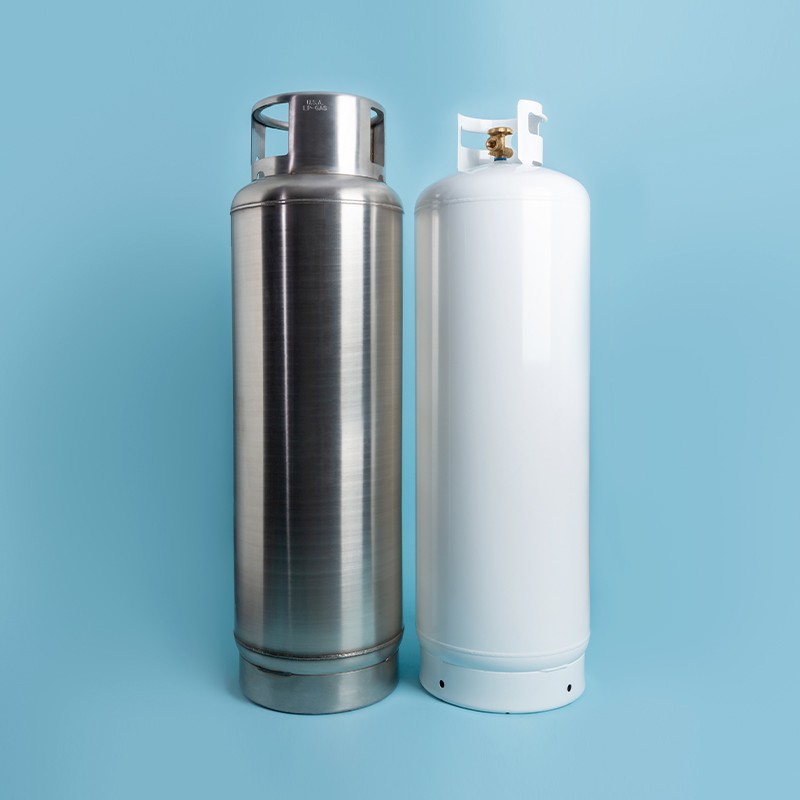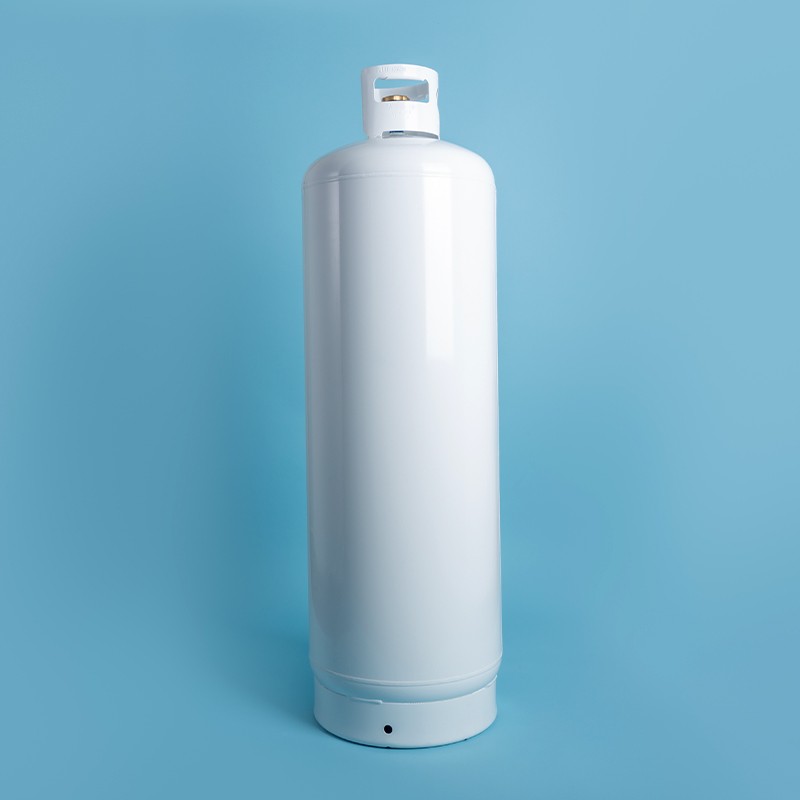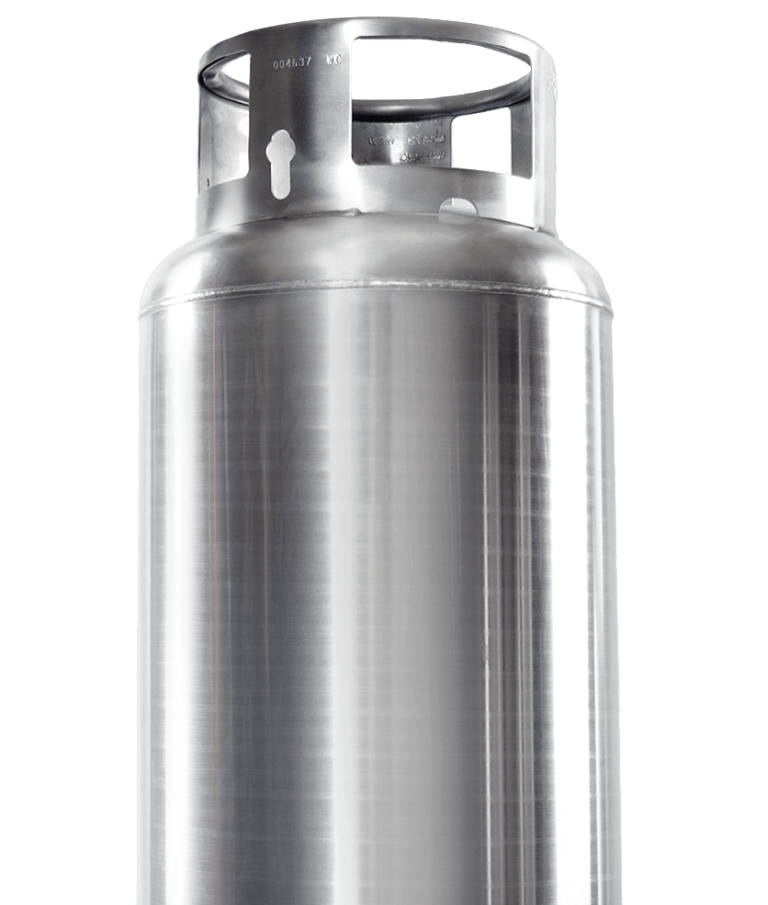Hydrocarbon extraction requires durable and clean tanks to contain the hydrocarbon gasses used to produce botanical extracts.
Stainless steel and carbon steel bulk hydrocarbon storage tanks are necessary equipment in the botanical extraction industry. While stainless steel is often more expensive, it’s inherently corrosion resistant and far easier to clean than most other materials, including carbon steel, which makes it well worth the price.
The botanical extraction industry depends on the heavy-duty equipment used by extraction technicians and facility managers. When working with volatile solvents such as butane and propane, all the extraction knowledge in the world is worthless without workhorse equipment you can trust.
Regarding hydrocarbon extraction, bulk storage tanks are available in stainless steel or carbon steel. However, both materials have advantages and disadvantages, making choosing one or the other a complicated proposition.
For anyone stocking a facility meant for extraction, the best course of action is to examine the differences and learn as much as possible about each type of tank.
That’s where we come in. Highpoint by Worthington Enterprises has deep roots in both the steel processing and pressure cylinder manufacturing industries with the necessary experience to point you in the right direction.

Stainless Steel Bulk Solvent Storage Tanks for Hydrocarbon Extraction
As we’ve detailed in previous articles, hydrocarbon extraction uses butane or propane to separate precious compounds from inert plant material. Those compounds are then used to produce a wide range of concentrated botanical products.
When the technician uses propane or butane to “wash” compounds from the plant’s surface, a certain grade of equipment must be employed to ensure the safety of team members and guarantee product quality. A stainless steel bulk solvent storage tank is often regarded as the best option in the industry.
What Is Stainless Steel?
Stainless steel stands alone in the world of metals. Its incredible resistance to corrosion makes it so unique, a quality not shared by many materials regardless of industry. In addition, its ability to stave off rust in normal circumstances makes stainless steel ideal for equipment used in extraction operations.
Scientifically, stainless steel is an iron alloy that must contain at least 11 percent chromium. It may contain other elements, such as carbon and other metals and nonmetals, but chromium is the most important since it forms a passive film that protects the material from rust-producing oxygen.

Benefits of Stainless Steel
It doesn’t matter if you’re in the botanical extraction industry or working as a chef in a kitchen: stainless steel has several benefits that make it the ideal choice for many materials. Here are a few of the top benefits of stainless steel, particularly when it comes to stainless steel tanks used in butane extraction or propane extraction.
- Corrosion Resistance
- Fire/Heat Resistance
Chromium enables stainless steel to retain strength under harsh and extreme temperatures. Also, stainless steel maintains its structural integrity at lower temperatures which is important since chilled solvents allow for more efficient extraction and less cannabinoid destruction. In contrast, carbon steel could become brittle at lower temperatures and cause safety hazards.
- Cleanliness
Stainless steel is an extremely hygienic material that’s easy to clean and sanitize. With a smooth, lustrous, and non-porous surface, dirt, grime, and bacteria (in addition, bacteria is less likely to grow on a stainless steel surface) can be easily removed from the surface of the material.
- Strength and Impact Resistance
Extremely tough and highly durable, stainless steel is impact resistant. It retains its shape but can also be easily welded, cut, and fabricated for any application.
- AESTHETICALLY PLEASING
Since it was first forged, stainless steel has been the picture of modernity. Its elegant, attractive, and bright appearance conveys a sense of purity and contributes to its ornamental and functional appeal.
- Long-Term Viability
In all industries, stainless steel exhibits longevity, so any perceived high cost is well worth your investment.
What Is Carbon Steel?
As its name suggests, carbon steel uses carbon as the main alloy. This type of steel is strong and durable, which is crucial for industrial extraction. The increased carbon content makes carbon steel stronger and harder than most other types of steel. It also tends to be more affordable than its stainless counterpart.

Why Is Stainless Steel Great for Hydrocarbon Extraction?
For extraction facility managers and technicians, the name of the game is efficiency and reliability. If your equipment fails, your product won’t be viable. This means no entering the marketplace, no establishing a foothold with customers.
Stainless steel tanks are far better for the containment of your bulk hydrocarbon solvent. As mentioned earlier, stainless steel is one of the most corrosion-resistant and hygienic materials in any industry. This alone makes stainless steel superior when it comes to containing gases used in the extraction process. In terms of cleanliness, stainless steel is far cleaner—and easier to clean—than traditional carbon steel.
Stainless Steel Tanks from Highpoint by Worthington Enterprises

Using equipment manufactured for industries other than your own makes it incredibly difficult for you to do your job properly, and it can even put your team’s safety in jeopardy. For far too long, botanical extractors have made do with ancillary equipment from other sectors to perform hydrocarbon extraction.
Not anymore! Highpoint by Worthington Enterprises brings close to 70 years of manufacturing experience to the world of hydrocarbon extraction. We build stainless steel tanks specifically designed for the growing botanical extraction industry.
Let’s elevate the process. Click here to start your Highpoint journey.
*Highpoint by Worthington Enterprises are not extractors. As such, you should not consider the information contained in this blog advice or instruction. We strongly suggest you reach out to the proper licensing and certification authorities to ensure you operate safely and compliantly.